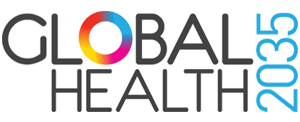October 7, 2016
In the 2013 report Global Health 2035: a world converging within a generation, the Lancet Commission on Investing in Health (CIH) showed that by increasing focused health sector investments, nearly all countries could achieve a “grand convergence” in global health by 2035 – a reduction in the rates of infectious, child, and maternal deaths to the levels of the best performing middle-income countries. In order to achieve such dramatic health gains, developing countries need to overcome significant funding gaps for their health systems. Addressing this resource gap is further challenged when countries transition into new income classifications that reduce access to external development assistance for health. Recently, the CIH partnered with researchers from the African Health Economics and Policy Association (AfHEA) to examine the fiscal implications for health financing in Ghana and Kenya as both countries graduate from Low Income Country (LIC) to Lower-Middle Income Country (LMIC) status. On September 27th, at the African Health Economics and Policy Association 4th Biennial Scientific Conference in Rabat, Morocco, this research partnership culminated in the presentation of country-specific analysis and policy recommendations.
CIH Commissioner Dr. Helen Saxenian set the stage for the series of presentations by reviewing several key sources of finance for achieving convergence including economic growth, mobilization of domestic resources, external development assistance for health, inter-sectoral budgetary reallocations, and improved health sector efficiency. She then discussed the recent re-basing of GDP in Ghana (2010) and Kenya (2014), the transition from LIC to LMIC status, and the resulting challenges for health financing in both countries. Dr. Saxenian emphasized the potential gains from stronger “win-win” tax policies such as taxes on alcohol, sugar, and tobacco, as well as a reallocation of fossil fuel subsidies toward the health sector. These strategies serve the dual purpose of improving health in the short term and raising revenue that can be directed towards public health needs for years to come.
AfHEA affiliated researchers Dr. Justice Nonvignon, Dr. Jacob Novignon, and Dr. Genevieve Aryeetey followed by presenting new research on the funding gap in Ghana and Kenya, the estimated domestic funding requirements to achieve a grand convergence in both countries, and potential sources of domestic resources to achieve this goal. Their research estimates that in order to reach a grand convergence, significant investment over and above current spending will be needed in both countries. Dr. Novignon presented the context in Ghana, highlighting the need for greater effort to raise domestic resources for health through broadening the tax base, improving health systems efficiency, and increasing private sector engagement for health. Novignon suggested that there are significant gains to be made by improving the efficiency of rural health facilities and by stimulating economic growth as a means of accumulating tax revenue. Dr. Aryeetey echoed these sentiments when examining potential paths forward for Kenya. She emphasized the need to enhance tax compliance and collection in order to raise domestic resources, as well as the need to curtail less productive expenditures within the health system. Both presenters underscored the importance of overall efficiency gains in both taxation and health service delivery.
Mr. Benjamin Nyakutsey (Head of Policy in the Policy Planning, Monitoring and Evaluation Department, Ghana Ministry of Health) concluded the presentations by offering a Ministry of Health perspective on the policy implications of this research in Ghana. He laid out a series of key health sector responses including bridging equity gaps in access to health services, ensuring sustainable financing for health care delivery by revising the National Health Insurance Scheme, and improving efficiency in management of the health system through stronger inter-sectoral collaboration. Nyakutsey ended the presentations by calling for greater political will and a broad attitudinal shift in Ghana to achieve the ultimate goal of a grand convergence in health. He highlighted the need to make the investment case clear to national governments in order to spark sustained commitment to health in transitioning countries like Ghana.
The panel participants closed by further discussing the policy implications of their research with audience members. With many LMIC governments preparing to respond to changes in national income status and seeking ways to mobilize domestic resources for health, lessons from Kenya and Ghana were relevant for policy makers and researchers in the audience, and the global health agenda more broadly.
